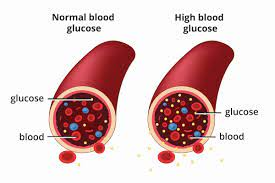Blood Sugar Optimization for NORMAL BLOOD SUGAR
OFFERS TO CONSIDER RELATED TO THIS TOPIC
https://www.digistore24.com/redir/307885/ssedealings/
https://bloodsugaroptimization.com/#aff=ssedealings
sounds like a title that might be associated with a book, article, or presentation related to managing and optimizing blood sugar levels. Blood sugar optimization is often discussed in the context of managing conditions like diabetes or promoting overall health and well-being. While I can't provide specific information about this particular resource without more context, I can offer some general insights into blood sugar optimization:
Blood Sugar Optimization for NORMAL BLOOD SUGAR
Diet: Eating a balanced diet that includes whole grains, lean proteins, healthy fats, and a variety of fruits and vegetables can help regulate blood sugar levels. Avoiding excessive consumption of sugary and processed foods is important.
Physical Activity: Regular exercise can help improve insulin sensitivity and regulate blood sugar levels. Aim for a combination of aerobic exercises and strength training.
Portion Control: Controlling portion sizes can prevent excessive spikes in blood sugar after meals. Eating smaller, more frequent meals throughout the day might help stabilize blood sugar levels.
Hydration: Staying adequately hydrated is essential for maintaining proper blood sugar levels. Water helps your body process glucose efficiently.
Stress Management: Chronic stress can affect blood sugar levels. Techniques such as deep breathing, meditation, and yoga can help manage stress and improve blood sugar control.
Sleep: Prioritizing good sleep habits can positively impact blood sugar regulation. Aim for 7-9 hours of quality sleep per night.
Medication and Monitoring: For individuals with diabetes, following prescribed medication regimens and regularly monitoring blood sugar levels are crucial for optimization.
Fiber Intake: Consuming dietary fiber can slow down the absorption of sugar and help maintain stable blood sugar levels. Foods like whole grains, legumes, and vegetables are good sources of fiber.
Glycemic Index: Being aware of the glycemic index of foods can help you make choices that have a slower impact on blood sugar levels.
Consult a Healthcare Professional: It's important to work with a healthcare provider, such as a doctor or registered dietitian, to develop a personalized plan for blood sugar optimization, especially if you have diabetes or other medical conditions.
Remember, individual responses to different strategies can vary, and what works well for one person might not work the same way for another. Always consult a qualified healthcare professional before making significant changes to your diet, exercise routine, or medication regimen.
OFFERS TO CONSIDER RELATED TO THIS TOPIC
https://www.digistore24.com/redir/307885/ssedealings/
https://bloodsugaroptimization.com/#aff=ssedealings








No comments:
Post a Comment